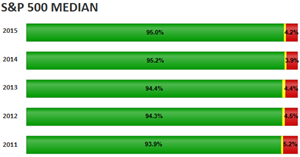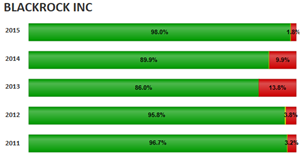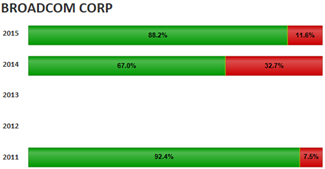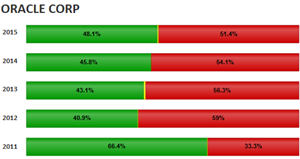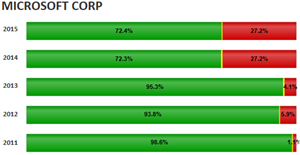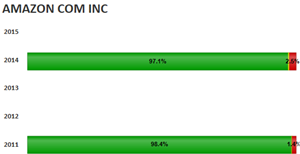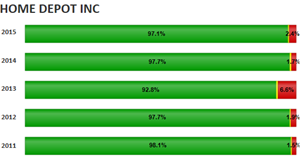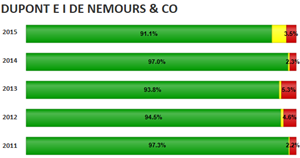|
Business
| Mon May 2, 2016 12:21am EDT
Capital Group leaders look to rein in inflated CEO pay
BOSTON
|
By
Ross Kerber
|
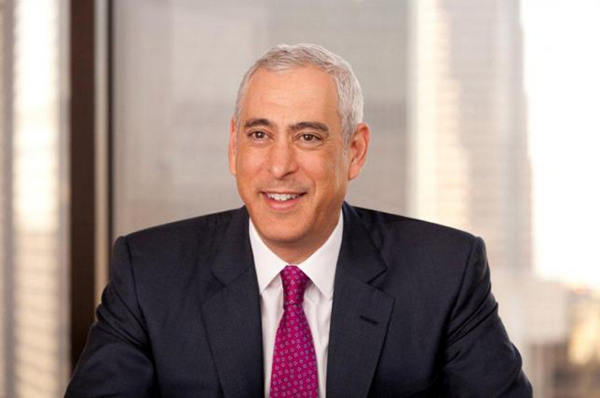
Alan
Berro, Capital Group portfolio manager, is seen in an undated
picture courtesy of Capital Group. Capital Group/Handout via
Reuters
|
The usually close-mouthed Capital Group is speaking up on executive
pay - throwing more brickbats than bouquets.
In a
recent interview, leaders of the $1.4 trillion Los Angeles-based
investment manager said they worry about the magnitude of pay for chief
executives and question whether corporate boards are using the right
benchmarks to determine compensation.
"There
has been this continued escalation where everybody wants to be in the
upper quartile," Alan Berro, senior portfolio manager at Capital Group,
told Reuters.
"Once
one guy raises it, they all want those raises, and we are willing to say
no," he said.
Berro's comments are important because Capital Group, which oversees the
big American Funds mutual fund family, is one of the largest holders of
U.S. stocks and is emerging as one of the toughest critics of corporate
compensation.
A
measure is its voting record on what are known as "say-on-pay" resolutions
- non-binding measures which let shareholders vote on whether to approve
compensation for top executives.
Last
year, big mutual fund providers including BlackRock Inc (BLK.N)
and Vanguard Group voted in support of say-on-pay resolutions of S&P 500
companies at least 96 percent of the time, according to research firm
Proxy Insight. Capital Group, however, was less generous in its support,
with its funds supporting the pay 86 percent of the time, one of the
lowest rates among big U.S. fund managers.
Executive pay, which has been a source of controversy for some time, has
drawn more scrutiny amid stagnant U.S. wages for the typical worker.
Median pay among S&P 500 CEOs rose to $11.3 million in 2014 from $9.4
million in 2010, according to pay consultant Farient Advisors.
Capital Group has rarely spoken about its proxy voting before, but decided
to offer more explanation because of growing interest in the area,
including from financial advisers and institutional investors, executives
said.
Like
other asset managers, Capital Group says executive pay should be linked to
performance. But proxy voting principles Capital recently posted online
also have an unusual caveat about "preventing excess" pay.
In
making pay judgments, Berro said, "We always come back to fairness, and
what makes sense in the given circumstances."
Berro
and others at Capital declined to single out individual companies whose
pay packages they view as problematic. A securities filing shows the $140
billion Growth Fund of America mutual fund (RGAGX.O)
voted "against" pay at two of the fund's 10 largest holdings last year:
Broadcom Corp and
Oracle Corp, (ORCL.N)
historically among the higher-paying technology firms. (Broadcom is now
part of Broadcom Ltd (AVGO.O).)
Top
holdings of its Capital World Investors unit include
Microsoft Corp (MSFT.O),
Amazon Inc (AMZN.O)
and Home Depot Inc (HD.N),
according to securities filings tracked by edgar-online.com. Capital World
has a stake of at least 4.5 percent in each of those companies, and other
Capital Group units hold additional shares.
Lately, the firm has been building up a database to track topics like how
companies' executive pay compares to peers, and to what extent stock
grants to executives have diluted outside shareholders, Berro said.
Berro
helps oversee investment selection among a wide range of blue-chip
companies that are now entering the season for annual meetings.
Not
all of Capital Groups' votes will please corporate critics. Its funds
opposed nearly all proposals calling for companies to report on climate
change, for instance. Berro said regulators are better-positioned than
shareholders to oversee such matters.
Capital Group has also gained a reputation in some quarters as being
activist-friendly - for instance, backing some dissident nominees to
Dupont's (DD.N)
board last spring.
But
Capital Group senior counsel Walt Burkley said his firm does not recruit
activists to target companies for changes. "There is no call to activism
from us," he said.
(Reporting by Ross Kerber; Editing by Lauren Tara LaCapra and Leslie
Adler)
|
News
and Media Division of
Thomson Reuters
© 2016
Reuters All Rights Reserved |
|

